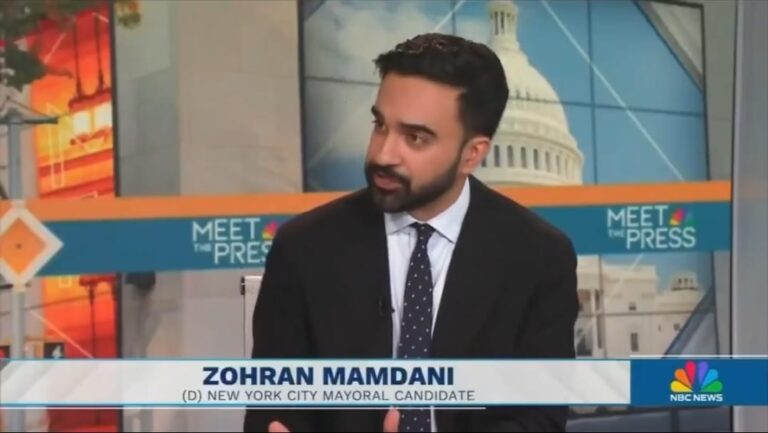 “How could you have voted against renewing the Rabbi’s contract? He visited my mother when she was in the hospital and took such good care of her! She adored him. He buried your father! He Bar Mitzvahed all three of the kids. Husband, have you no shame?”
“How could you have voted against renewing the Rabbi’s contract? He visited my mother when she was in the hospital and took such good care of her! She adored him. He buried your father! He Bar Mitzvahed all three of the kids. Husband, have you no shame?”
“Yes dear, but the other shul is growing more and more popular. If our shul will continue to survive we need to bring in someone younger, and more dynamic.”
Invariably, the above conversation has taken place in one form or another all over the country, throughout the centuries, and across continents. Jews, however, have always turned to Halacha for guidance in all matters. Is there then halachic guidance about renewing the contracts of our providers of halachic guidance?
THE RAMAH
The Ramah in Yoreh Deah (245:22) tells us that if a person has been established as a Rabbi in a community, he should not be removed from his position – even if someone greater has come. This is based upon a responsa of the Rivash 271. Indeed, the Ramah explains that the Rabbi’s son and grandson will always have precedence over another. The Ramah qualifies this last point that it is only when they [the descendents] fulfill the position in a G-d-fearing manner, and that they are at least somewhat scholarly.
From what the Ramah writes so far, it would appear that the wife is correct and the husband is in deep trouble, not only with his wife, but with Shulchan Aruch too.
Luckily, for our hapless husband, the Ramah continues (We will call this Part II):
He writes that (A) in a place where there is a custom to accept a Rabbi for a certain period of time or where it is the custom to choose whomsoever they wish, “Hareshus b’yadam – they have that permission.” He further writes (B): “But if the congregation accepted him upon them.. no one else may come and be on top of him or remove him.”
Seemingly, if the custom is to have contracts for specific lengths and terms, then they may do so and hire another Rabbi. So the husband, it would at first seem, would have been permitted to vote not to renew the Rabbi’s contract.
THE ARUCH HASHULCHAN
But things are not always what they seem.
The Aruch HaShulchan writes (YD 245:29) that even though the Rabbi was only hired by the town for a certain number of years, nonetheless, they may never fire him.
There are some Poskim (Ohel Moshe CM 26) who understand that this is the intent of the Ramah, since Part II B of the Ramah seems to contradict Part II A. How so? Part B seems to clearly be addressing a city where the custom is to allow hiring for specific periods of time. If so, what is this further qualification?
These Poskim state that the new Rabbi may not take over the income-producing aspects of the job that the previous person had. He may, however, take new ones (see Ohel Moshe).
CH’SAM SOFER – TERMS ARE ONE-WAY
The Pischei Teshuvah CM 333:6 (at the end) cites a responsa of the Chsam Sofer, who writes that the contract terms are for the benefit of the Rabbi, but not for the congregation – namely that they may never fire him, but he may leave at the end of the stipulated period if he so wishes. [He also writes that the reason for the contract years in the first place is to avoid the appearance of slavery.]
IF THE RABBI BEHAVES INCORRECTLY
Of course, this is only when the Rabbi has not stumbled terribly or behaved against Shulchan Aruch. There is no doubt that if the Rabbi is ordering pizza from Momma Leona’s in Manhattan that he can be dismissed – even within the contract term.
Rav Shlomo Eiger (Yoreh Deah 245 in his Hagaos) writes that when the Rabbi is performing his function in a grossly improperly manner, then he may also be removed, but only after warning. He writes that if the Beis Din did warn him and he scoffs at the warning, then in fact, he should be removed. This view is also found in the responsa of the Meishiv Davar (Siman 10) that if a Beis Din is convinced that he is functioning in his position in an irreverent and mocking manner, he is to be dismissed.
The idea may seem somewhat counter-intuitive to the reader – that the Rabbi cannot be dismissed even after his contract expired and has an implicit “life-time” contract, so to speak. Nonetheless, the import of the Gemorah in Brachos 28a is clearly in accordance with this notion. There, Rabban Gamliel was dismissed by the academy because of his inappropriate back and forth with Rabbi Yehoshuah. Rabbi Elazar Ben Azariah was hired in his stead. Yet when Rabban Gamliel was reinstated, they could not merely dismiss Rabbi Elazar Ben Azariah. They thus retained him for one week out of the month, as the Gemorah clearly states there.
WHY THE IMPLICIT “LIFE-TIME” UNDERSTANDING?
What is the rationale for this life-time contract clause understanding? It seems that there is a three way debate as to the source of this notion. We will examine all three views, that of the Rambam, the Mabit, and the Rivash.
THREE OPINIONS
The Rambam (Hilchos Malachim 1:7) writes that it is based upon a verse in Dvarim (17:20) that a position of leadership is one that should continue. Although clearly the verse refers to a monarch, the Rambam writes that it refers to all leadership positions in Israel. The Ritvah and Rambam in Makos (end of chapter two) concur with this view, which is based upon the Sifrei on that verse regarding the words “B’kerev Yisroel.” So, succinctly, the Rambam’s reason is that leadership needs to be empowered and the Torah did so for the Rabbinate as well.
The Mabit (Volume III #200) writes that one may not fire the Rabbinic leader as a kal vachomer (a fortiori argument) from the fact that since it is a position that he may bequeath to his son, it is a kal vachomer that it may not be removed from him against his will. The Mabit seems to understand it as a right that is owned by the Rabbi, very similar to a civil right.
The third opinion is found in the responsa of the Rivash (#271). He writes that it is on account of the principle of maalin bakodaish v’ain moridin (See Shabbos 21b) – we only lift up things in matters of Kedusha and we do not lower. This view is also espoused by the Vilna Gaon (YD 245:39). This third reason deals with issues of Kedusha – holiness.
Our hapless husband, it seems, is clearly in trouble.
THREE COUNTER ARGUMENTS
But does he have no leg to stand on whatsoever? Aside from some untoward or unseemly activity on the part of the pulpit Rabbi, is there no other manner in which he can be dismissed?
There may be an alternative method to resolving the seemingly contradicting clauses in the Ramah. It could be that the Ramah is saying in Part IIB that even though the congregation has accepted upon themselves this lower status of a Rav, one with only a set time – do not think that this can give others license to come into town and compete with the Rav in any manner. He is still considered to be a full-fledged Rabbi – notwithstanding the fact that there is a set limit to his term. Thus far, however, this author has not found any of the Achronim that read the Ramah in this manner.
One can also make an argument that the Aruch HaShulchan and the position of the other Achronim were discussing the situation in Europe where the prevailing Minhag may have been never to discontinue with a Rav even if one had contracted for a set period of years. Here in America, one can perhaps argue that the prevailing custom is to follow contract law and, sometimes to not renew the contract. So it could very well be that things are different in America.
Finally, we find that Rav Shternbuch (Teshuvos v’Hanhagos Vol. II #722) does make a qualitative distinction between a Rabbi who takes the mantle of Psak Halacha on his shoulders and teaches Torah to the masses (as has been the role of a Rav in Israel from generation to generation) and a Rabbi whose main purpose is to speak at funerals, weddings, Bar Mitzvahs and in shul on the Shabbos and holidays. Rav Shternbuch writes that it should be comparable to the citation of the Yerushalmi “Av Beis Din she’sarach ain moridin oso – An Av Bais Din who stumbled – we do not forcibly remove him.” He writes that the Rabbi must be somewhat comparable to an Av Bais Din in terms of his ability to rule.
Nonetheless, he concludes that even in the case of someone who does not fit into that definition per se, should be treated with respect and not be dismissed until he finds some other suitable and respectable position.
Whatever the case may be, they should come to a mutually acceptable accord, for all three reasons mentioned above – that leadership should continue in Israel, that it is something belonging to another that cannot be taken away and that we only lift up things in matters of Kedusha and we do not lower.
The author can be reached at [email protected]
Article originally appeared in the 5 Towns Jewish Times.
(By Rabbi Yair Hoffman / YWN World Headquarters – NYC)











One Response
This article doesn’t address the situation when the Minhag is to take new votes. In fact, it is odd to address this Shayla about the husband in the story. He is merely casting a vote and he has every right to do so. If the question is how it can be put to a vote that is a different story.